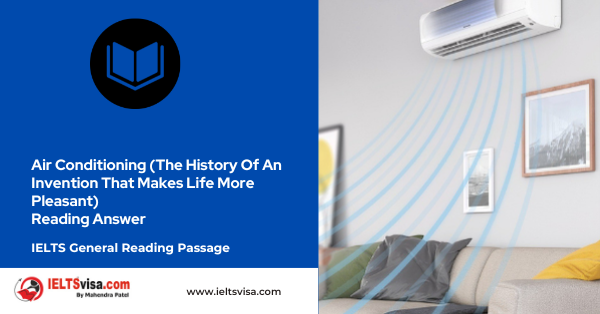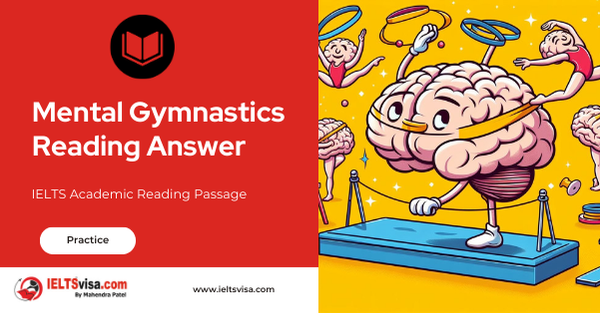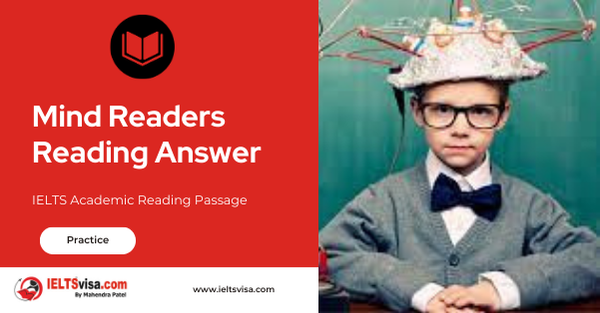Air Conditioning (The History Of An Invention That Makes Life More Pleasant) Reading Answer
IELTS General Reading Passage
The history of an invention that makes life more pleasant
Willis Carrier designed the first air-conditioning unit in 1902, just a year after graduating from Cornell University with a Masters in Engineering.
At a Brooklyn printing plant, fluctuations in heat and moisture were causing the size of the printing paper to keep changing slightly, making it hard to align different colours. Carrier’s invention made it possible to control temperature and humidity levels and so align the colours. The invention also allowed industries such as film, processed food, textiles and pharmaceuticals to improve the quality of their products.
In 1914, the first air-conditioning device was installed in a private house. However, its size, similar to that of an early computer, meant it took up too much space to come into widespread use, and later models, such as the Weathermaker, which Carrier brought out in the 1920s, cost too much for most people. Cooling for human comfort, rather than industrial need, really took off when three air conditioners were installed in the J.L. Hudson Department Store in Detroit, Michigan. People crowded into the shop to experience the new invention. The fashion spread from department stores to cinemas, whose income rose steeply as a result of the comfort they provided.
To start with, money-conscious employers regarded air conditioning as a luxury. They considered that if they were paying people to work, they should not be paying for them to be comfortable as well. So in the 1940s and ’50s, the industry started putting out a different message about its product: according to their research, installing air conditioning increased productivity amongst employees. They found that typists increased their output by 24% when transferred from a regular office to a cooled one. Another study into office working conditions, which was carried out in the late ’50s, showed that the majority of companies cited air conditioning as the single most important contributor to efficiency in offices.
However, air conditioning has its critics. Jed Brown, an environmentalist, complains that air conditioning is a factor in global warming. Unfortunately, he adds, because air conditioning leads to higher temperatures, people have to use it even more. However, he admits that it provides a healthier environment for many people in the heat of summer.
Questions 1-5
Choose the correct letter, A, B, C or D.
1. When Willis Carrier invented air conditioning, his aim was to
A make workers feel cooler.
B produce more attractive paper.
C set up a new business.
D solve problems in a factory.
2. Home air conditioners were not popular at first because they were
A too big and expensive.
B not considered necessary.
C too inefficient.
D complicated to use.
3. Employers refused to put air conditioning in workplaces at first because they
A could not afford to pay for it.
B thought it was more suitable for cinemas.
C did not want to spend money improving working conditions.
D thought people would not work so hard in comfortable conditions.
4. What was the purpose of the research done in the 1940s and ’50s?
A to make office workers produce more
B to compare different types of air conditioner
C to persuade businesses to buy air conditioners
D to encourage employees to change offices
5. What does Jed Brown say about air conditioning?
A In future, everyone will need it.
B Turning it off will not reduce global warming.
C It can seriously damage people’s health.
D It is good for people, but bad for the environment.

Solution:Air Conditioning (The History Of An Invention That Makes Life More Pleasant) Reading Answer
| 1. D | 4. C |
| 2. A | 5. D |
| 3. C |
Review and Practice
- Regularly practice with IELTS reading samples and time yourself to get used to the pressure of the exam.
- Review your mistakes to understand where you went wrong and how to avoid similar errors in the future.
Our Books
Master IELTS Speaking Part 1
IELTS Writing Task 1 Book
IELTS Writing Task 2 Book
Air Conditioning (The History Of An Invention That Makes Life More Pleasant) Reading Answer Explanation
| Question NO | Question Types | Answer | Keywords | Supporting Sentence | Location of Keywords | Explanations |
|---|---|---|---|---|---|---|
| 1 | Choose the correct letter | D | Fluctuations in heat and moisture | Fluctuations in heat and moisture were causing the size of the printing paper to keep changing slightly, making it hard to align different colours. | Paragraph 1 | Willis H. Carrier invented air conditioners in 1922 to regulate the temperature amid the US’s extreme heat waves. It also aids in lowering humidity and maintaining the coolness of the spaces. In reality, air conditioners were installed to prevent magazine pages from wrinkling due to the humid air in printing facilities. |
| 2 | Choose the correct letter | A | Weathermaker, cost too much | It took up too much space to come into widespread use, and later models, such as the Weathermaker, which Carrier brought out in the 1920s, cost too much for most people. | Paragraph 2 | Luxury did not return to the West until the 1800s. It was still very difficult to deal with the issue of poverty. The hand fan was the most effective cooling device 3000 years ago. Additionally, the creation of the first room-sized rotating fans gave some regions of the world another option for cooling. Hand fans and revolving fans were more widely used than air conditioners since they were less expensive and smaller in size. |
| 3 | Choose the correct letter | C | Comfortable, paying people to work | They considered that if they were paying people to work, they should not be paying for them to be comfortable as well. | Paragraph 3 | Leading a lavish life at the time of AC creation was no easy task. Nobody could afford expensive stuff. Employers balked at purchasing air conditioners for their workplaces because they couldn’t afford the equipment and the associated high electricity costs. Purchasing air conditioners would put them in dire financial straits throughout the long period of economic slump. |
| 4 | Choose the correct letter | C | Installing air conditioning, increased productivity | Installing air conditioning increased productivity amongst employees. | Paragraph 4 | The study conducted in the 1940s and 1950s was essential in raising awareness of air conditioners and encouraging several firms to purchase them. Additionally, this saw the employees’ incomes steadily improve in order to give them comfort. |
| 5 | Choose the correct letter | D | Air conditioning, global warming | Jed Brown, an environmentalist, complains that air conditioning is a factor in global warming. | Paragraph 4 | Environmentalist Jed Brown expressed concern that air pollution contributes to global warming. The CFCs in air conditioners raise temperatures, hurting the ecosystem and contributing to global warming. But he also acknowledged that during the intense summer heat waves, air conditioning gives individuals a healthful environment. |
Practice IELTS Other Modules
IELTS Listening
The IELTS Listening test assesses how well you can understand spoken English in various contexts. It lasts about 30 minutes and is divided into four sections with a total of 40 questions. The listening tasks become increasingly difficult as the test progresses.
IELTS Academic Reading
The IELTS Academic Reading section assesses your ability to understand and interpret a variety of texts in academic settings. It is designed to evaluate a range of reading skills, including skimming for gist, reading for main ideas, reading for detail, understanding inferences, and recognizing a writer's opinions and arguments.
IELTS Speaking
The IELTS Speaking test assesses your ability to communicate in English on everyday topics. It lasts 11-14 minutes and consists of three parts: introduction, cue card, and a discussion based on the cue card topic.
IELTS General Reading
IELTS General Reading tests your ability to understand and interpret various types of texts. Here are some key areas and types of content you can expect to encounter in the reading section, along with tips for effective preparation.
IELTS Academic Writing Task 1
In IELTS Academic Writing Task 1, you are presented with a visual representation of information, such as graphs, charts, tables, or diagrams, and you are required to summarize, compare, or explain the data in your own words.
IELTS General Writing Task 1
In IELTS General Writing Task 1, you are required to write a letter based on a given situation. The letter can be formal, semi-formal, or informal, depending on the prompt. Here’s a breakdown of the key components to include in your letter
IELTS Academic Writing Task 2
In IELTS Academic Writing Task 2, you are required to write an essay in response to a question or topic. Here’s a guide to help you understand the essential elements of this task
IELTS Exam Tips
To succeed in the IELTS exam, practice regularly, familiarize yourself with the test format, improve your vocabulary, develop time management skills, and take mock tests to build confidence.
Grammer for IELTS
Grammar is the foundation of effective communication in English. Understanding tense usage, subject-verb agreement, and sentence structure enhances clarity and coherence in writing and speaking.
Vocabulary for IELTS
Vocabulary plays a crucial role in the IELTS (International English Language Testing System) exam, especially in the Speaking and Writing sections. Here’s an overview of why vocabulary is important and how it impacts your performance
RECENT IELTS SAMPLES QUESTIONS AND ANSWERS
Mental Gymnastics Reading Answer
A. THE working day has just started at the head office of Barclays Bank in London. Seventeen...
Micro Enterprise Credit For Street Youth Reading Answer
"I am from a large, poor family and for many years we have done without breakfast. Ever since...
Nature Or Nurture? Reading Answer
A A few years ago, in one of the most fascinating and disturbing experiments in behavioural...
Measures To Combat Infectious Disease In Tsarist Russia Reading Answer
A In the second half of the seventeenth century, Russian authorities began implementing...
Mind Readers Reading Answer
It may one day be possible to eavesdrop on another person’s inner voice. As you begin to read...
New Rules For The Paper Game Reading Answer
1. Computerized data storage and electronic mail were to have heralded the paperless office....













